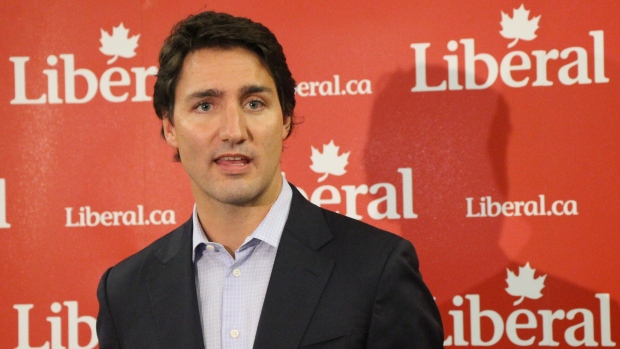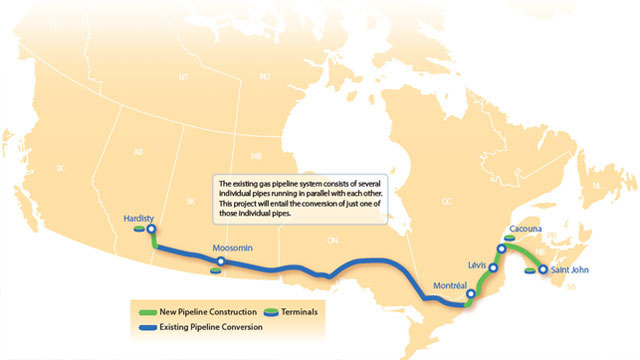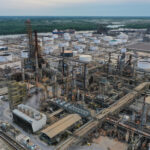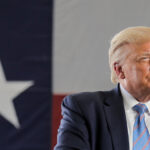Justin Trudeau wins surprise majority government
The Liberal Party, led by Justin Trudeau, won a majority government in a political upset in the Election for Canadian Prime Minister last night. The Liberals finished with 184 seats in the parliament (39.5%), while the former majority leading Conservative party followed with 99 elected (31.9%). The New Democratic Party (NDP) won 44 seats (19.7%), Bloc Quebecois won 10 seats (4.7%) and Green Party Leader Elizabeth May was reelected in B.C., the party’s only seat in parliament (3.5%). The Official Opposition will now be headed by the Conservatives, although it looks as though Stephen Harper, the party leader and prime minister for the previous ten years, will be stepping down, reports CBC.
The defeats for the Conservatives include several cabinet ministers: Finance Minister Joe Oliver in Toronto, Fisheries and Oceans Minister Gail Shea in P.E.I., Aboriginal Affairs and Northern Development Minister Bernard Valcourt in New Brunswick and Immigration Minister Chris Alexander in the Greater Toronto Area.

The Liberals won seats in every province and took the lead in all provinces except Alberta and Saskatchewan.
Canada’s energy industry concerned about the new government
The Canadian oil and gas industry was hoping for another Conservative government, as the sector looks to grow through a number of projects. The new Liberal government is not as supportive of expanding pipeline projects as the Conservatives were during campaigns, but they do support some projects.
Canada’s new leading party is in favor of TransCanada’s (ticker: TRP) Energy East pipeline that would stretch across the country, but lukewarm on their proposed Keystone XL expansion down to the U.S. and downright frosty against Enbridge’s (ticker: ENB) proposed Northern Gateway project in B.C.
Despite support for some projects, Canada’s oil and gas sector expressed concern over the new government. Grant Fagerheim of Calgary-based E&P Whitecap Resources (ticker: WCP) told CBC he was “very concerned” about the possibility of Canadians electing another Prime Minister Trudeau.
The new Canadian Prime Minister is the son of Pierre Trudeau, who served as Prime Minister of Canada from 1968 to 1979 and who enacted the National Energy Program (NEP). The goal of the NEP was three-fold: achieve energy security; a redistribution of wealth towards the federal government and consumers; and greater Canadian ownership of the oil industry, according to The Canadian Encyclopedia. This was achieved through new taxes on the oil industry, an expanded role of the Crown Corporation and a 25% government share of all oil and gas discoveries offshore and in the North.
Fagerheim said it took 15 years for the industry to recover from the program.
CEO of Blackbird Energy (ticker: BBI) Garth Braun told Oil & Gas 360® that it is important to remember that there are separate provincial and federal regulations, and that the regulations in place in Alberta are already some of the most extensive in the world.
“I think there is going to be a greater focus on the environment with this new government,” Braun said. “But the Alberta oil and gas industry already uses some of the best practices in the world, so I don’t see it being a problem.”
Braun said he does not believe the new government is anti-energy, but he hopes to see good leadership in the days to come.
Focused on infrastructure
While the Canadian oil and gas sector waits with bated breath to see how closely Trudeau will follow in his father’s footsteps, other industries are poised to do well, notably anything concerning building, reports CBC. One of the centerpieces of the Liberal platform was a pledge to spend $60 billion to fill Canada’s yawning infrastructure gap, updating the county’s roads, bridges and railways so that businesses can use them more efficiently.
The plan will require the government to run deficits over the next three years to fund the spending, which represents about three percent of the government’s total spending.
The Liberal landslide victory was “an impressive win,” but Canada’s Prime Minister-designate needs to make his plans clear, says the current chairman of Barclays Capital Canada and former cabinet minister who served under Conservative Prime Minister Brian Mulroney. “It’s important for Mr. Trudeau to get out there quickly and try to put some direction in a more specific way on where his government is going to take the country,” Wilson told BNN.
Initial market reaction to the new Liberal majority government has been muted. The Canadian dollar dipped slightly overnight on the news before firming up. But investors are soon going to need to know where the new government stands on issues such as energy, climate change, trade and relations with the U.S., said Wilson.
Investors will be watching the new government to assess how hands-on the Liberals will be with the economy, said Wilson. “Will this government be more intrusive in its relations with the economy or will it stand back and let the markets work as efficiently as possible?”
Wilson says Trudeau’s plan to raise taxes on the wealthiest Canadians could face a backlash as some Canadians see their tax bills rising above 50% of their income. That sticker shock could push some young professionals to look for greener pastures in the U.S.








